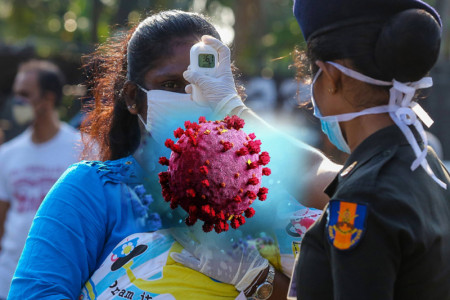Head of the Epidemiology Unit of the Health Ministry, Dr. Samitha Ginige told to us that “Although the number of daily infections has marginally increased, the situation does not seem to be alarming as we are through with a massive vaccination drive.”
Nevertheless, he said that it was not a guarantee to say that people cannot be infected with the coronavirus. “Anyone can be infected with the virus; however, there is little chance of having severe complications owing to a successful vaccination drive,” he underscored.
“Since we have been able to vaccinate a vast majority of people, there is less possibility of leading to devastating outbreaks,” Dr Ginige added.
When asked as to how the present cases are recorded, he said “We don’t test every single person diagnosed with cold or fever. It is up to the medical officer to decide whether the patient should undergo a COVID testing.”
“If we increase our testing, there could be more cases. Nonetheless, Dr. Ginige stressed that there was no point in scaling up the testing capacity, given the strong immunity that people have gained through vaccination.
“We have never done away with our surveillance mechanism despite the COVID situation having come under control. However, we have now changed the strategy by which surveillance mechanism is done,” he added.
As per the statistics of the Epidemiology Unit, there has been an average of three cases being reported in the last 10 days. Data further show that the average number of cases being recorded in the last five days is at six.
According to foreign media, Singapore’s infections almost doubled in the final week of March to the highest this year, and India reported its biggest single-day tally since late-August, while Indonesia’s daily caseload is near a four-month high and Vietnam is ramping up virus prevention measures.
Against such a backdrop, the Health Ministry officials raised the significance of complying with health measures like wearing of face masks.
Sheain Fernandopulle


